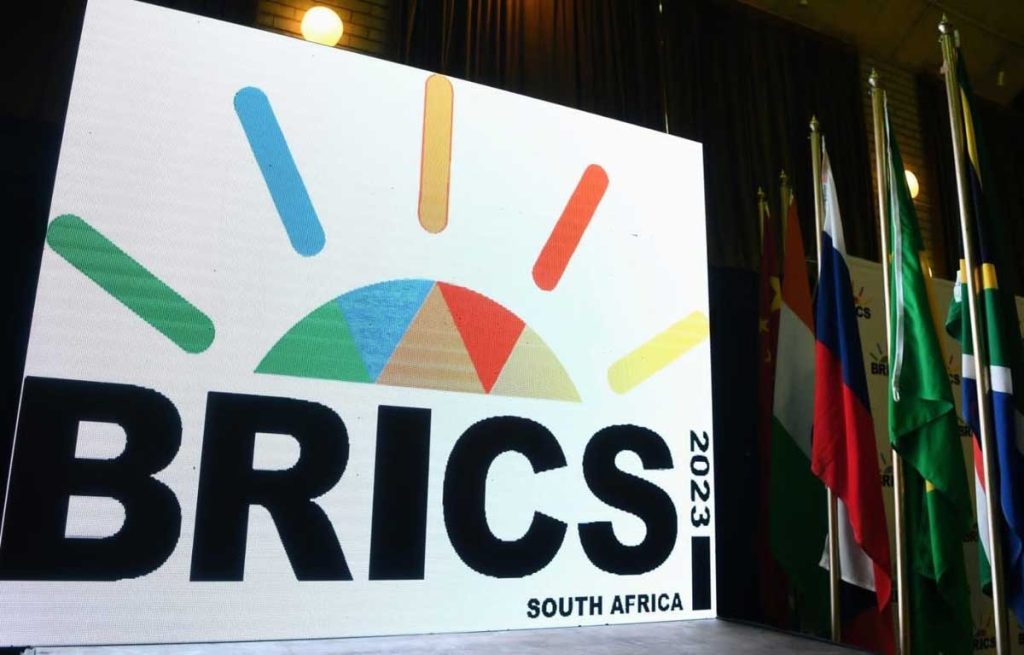As Voltaire noted that “History is replete with the sound of silken slippers (US being dominant strategic and economic power) going downstairs and wooden shoes (rise of the rest) coming up”. The stage looks set for a new competition for power between the United States and the rest. The world is moving swiftly from unipolar to multipolar power structure, if not already there. The unilateral predilection of the US in the conduct of international politics has propelled the regional powers to contest its hegemony and work towards a fair and equitable international order. The emerging regional powers especially China, Russia and India are trying to strengthen their influence in world politics because of their capabilities. The most vocal collective manifestation of this effort is the grouping of BRICS nations (Brazil, Russia, India, China, South Africa). The heightened attention to BRICS, in global discourse, underscores the fact that emerging economies are striving to reduce their dependence on Western-centric models of global governance. BRICS is undergoing a calculated phase of expansion as the lineup of aspiring members continues to expand.
BRICS has effectively articulated the increasing frustration of emerging economies with the dollar. Unilateral sanctions motivated by geopolitical and geostrategic considerations have fueled the disillusionment with the dollar in many regions of the world. The increased use of sanctions as a tool of statecraft has increased resentment and the notion of neo-imperial control is gaining traction in the Third World countries. This has prompted many countries to vouch for the replacement of the dollar as a global reserve currency. Another strategy is to displace the dollar by trading through the local currencies to circumvent the potential pitfalls of using the dollar. This poses a serious challenge to the US’ ability to cripple the economies of strategically defiant nations.
The US approach to BRICS has dramatically changed in a short period of time. The outgoing Biden administration was dismissive of BRICS as some sort of threat, even in the closing months of its tenure. While the incoming administration in Washington perceives BRICS as a likely threat to the US’ financial and political preeminence worldwide. In the backdrop of the relative decline of US economic and financial power, a cascade of tariffs has been issued directly by President Trump to the BRICS nations to deter such efforts to undermine the US Dollar. Kremlin, in response to this said that such threats will backfire as more and more countries are switching to the use of national currencies in their trade and foreign economic activities.
Moreover, the uncertain dynamics of admittance, hesitation regarding admittance (in case of Turkey) rejection by invited nations within the BRICS framework serve as an indicator of the bloc’s evolving identity and its uncertainty in shaping the global order. Argentine has declined the BRICS invite for greater economic opportunities with the US. On the other hand, Saudi Arabia is hedging its membership invitation by holding its cards close to its chest, indicate the seriousness of US’ uneasiness with the bloc. On the flip side of it, the recent inclusion of countries like Egypt, Ethiopia, Iran, and the United Arab Emirates (UAE) is a resounding testimony of the growing appeal and influence of the bloc. But it is important to note that the BRICS nations are not a homogeneous group of countries with common aims and objectives. The inclusion of countries from diverse geographical regions could potentially make the consensus making and joint effort within the grouping cumbersome and a difficult process. This pitfall could be mitigated through structural reform of the decision-making process within the grouping.
Furthermore, Trump’s threats to BRICS nations could potentially be more worrisome for a few countries, like India. New Delhi is amongst the founding members of the grouping, but it has divergent foreign policy aspirations. India’s paradoxical positioning: a committed member of BRICS yet strategically aligned with Western powers, particularly the US, has raised fundamental questions about the effectiveness of the platform. India’s foreign policy choices align closely with US strategic interests, potentially undermining BRICS’ collective strength because a complete consensus among BRICS nations is needed to proceed with any effort. India’s role within BRICS may serve as a conduit for Western influence, weakening the bloc’s strategic autonomy. India is neither committing itself for a shared BRICS currency nor for the reforms that could imply de-dollarization, due to its foreign policy interests but if the BRICS nations pursued their avowed agenda then it could be a major foreign policy dilemma for India. As BRICS nations are searching for options to reshape the distribution of global economic power, even efforts such as the adoption of the Euro by advanced European capitalist economies have failed to displace the USD from its position as the dominant currency of our time. So, dethroning the dollar as a dominant global currency would take a lot of collective effort from the interested countries at the expense of US’ tariffs and alienation efforts. While Trump’s threats seem to have a pacifying impact upon the BRICS nations it would ultimately push the countries to look for alternatives to bypass the economic arm twisting by US, especially with Trump in power. For the countries looking to diversify their economic options, China seems an attractive option. So, the protectionist policies aimed at arresting the decline of US power could potentially have a counter-productive effect in the long run upon the Third World nations from the perspective of the US. As the Trump begin to shape the world economy, the alternative options for the developing economies seem more appealing, giving the Global South narrative paddled by China and other emerging economies more traction among the Third World through BRICS platform.
This article was published in another form at https://moderndiplomacy.eu/2025/05/17/the-future-of-brics-with-trump-in-power/
Muhammad Haseeb Riaz is a Research Assistant at Center for International Strategic Studies (CISS), Islamabad.

